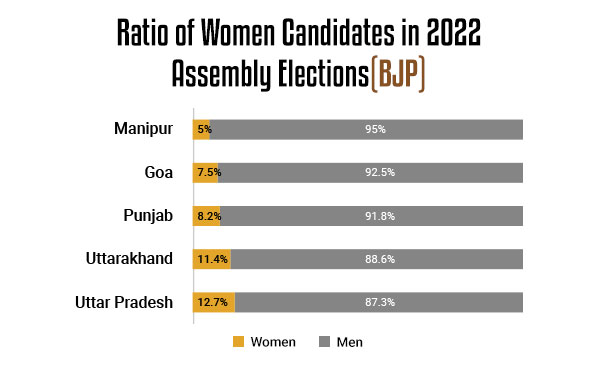
Women empowerment in India has remained a fighting cause for political parties, activists, and social change agents ever since the independence of India. With 5 states in a poll mode for the past 2 months, the subject has been milked to the hilt. In particular, the Congress party has made women’s participation and empowerment the primary poll plank in its party manifestos.
This week, Nirmala Sitharaman, Finance Minister and a senior BJP leader, stirred up the hornet’s nest within the corporate world by announcing that she is unable to convince women to take up leadership roles.
I have actually called up some women and said we want your experience and presence on the board. But I have not had enough women coming. – Nirmala Sitharaman
As per the Companies Act, 2013, it is mandatory to have at least one woman on every board while the recommendations of the Kotak committee have urged at least one independent woman director in the top 1000 listed entities. As per a recent survey by Deloitte, only 3.6 percent of board chairpersons in 2021 were women, compared with 4.5 percent in 2018. “Get me those kinds of women who can be put on the boards. Where are they?” she asked the audience at a post-Budget meet with industry leaders in Delhi.
While the FM’s call is laudable for improving the gender balance in the corporate world, it reeks of hypocrisy at another level. Nirmala Sitharaman is one of the 4 top leaders of the BJP, a party that has had an abysmal track record in promoting women, despite being in government for the last 7.5 years.
BJP - Women’s participation in Parliament

In the 2014 Lok Sabha, BJP had 242 MPs of which only 30 (11%) were women. BJP bettered its gender mix marginally in the 2019 Lok Sabha by having 42 women (13.8%) amongst its 304 MPs. BJP’s ratio of women in the Rajya Sabha is even lower – only 9 (9.3%) of its 97 MPs are women. Across all parties, the women’s representation in the current Lok Sabha and Rajya Sabha is marginally higher at 15% and 11% respectively.
When compared with global standards, an average of 25.6% of MPs in Parliaments around the world in 2020 were women. The ratio was even higher in some countries such as France (39.5%), the UK (33.8%), and China (24.9%).
BJP - Women’s participation in State Elections
BJP’s trust in women to participate in state-level politics does not seem much higher when you look at the number of women candidates given tickets to contest the upcoming Assembly elections in 5 states.

In the 2022 Assembly elections for Manipur, only 2 (5%) of the 36 BJP candidates were women, while women comprised only 7.5% of candidates in Goa, 8.2% in Punjab, 11.4% in Uttarakhand, and 12.7% in the Uttar Pradesh election for phases 1-5.
In summary, until BJP leads by example by allowing women a greater role in its own party, it will be difficult for its leaders to evoke trust in other spheres of Indian society.
TO READ THE FULL ARTICLE

Get full access to the exciting content on The Mirrority by logging in
Support independent journalism
Even the very best of media houses in our country today are yielding to the pressure of click-bait journalism in order to survive. More than ever before, our country needs journalism that is independent, fair and non-pliant to the bureaucracy. Such journalism needs the support of like-minded readers like you to help us survive editorially and financially.
Whether you live in India or India lives inside you, help us continue to produce quality journalism with your contribution.
CONTRIBUTE

